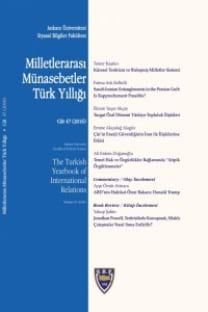The United Nations Sanctions Policy and International Law
Article 41 of the United Nations Charter provides for economic andother kinds of non-military measures for maintaining or restoringinternational peace and security, without using the term sanctions todesignate such measures.1 These coercive measures bind ali member states.2They are listed in connection with the maintenance of peace in Chapter VII ofthe Charter3 and have become familiar to a broad public in the wake of the1991 Gulf War.4 The use of economic coercion is a prior step to military force as provided for in articles 42 et seq.5 Interestingly, the Charter grantsthe Security Council a şort of monopoly över definitions in this field; theSecurity Council decides on its own whether a threat to peace, a breach ofpeace, or an act of aggression exists.It remains undisputed that sanctions are permitted by law as specifîccountermeasures to violations of international law and that, in the event ofsuch a violation, contractual obligations to the "law-breaking" state whichotherwise apply are invalidated. The problematic nature of this issue hasbeen thoroughly treated by the International Law Commission of the UnitedNations under the heading "Legitimate application of a sanction".6 In Article30 of the "Draft articles on State responsibility" (1979), the Commissionrecommended a formulation of this normative priority of sanctions ininternational law; the revised title of this article reads "Countermeasures inrespect of an internationally wrongful act"
Anahtar Kelimeler:
The United, Nations Sanction, International Law
The United Nations Sanctions Policy and International Law
- ISSN: 0544-1943
- Yayın Aralığı: Yıllık
- Başlangıç: 1960
- Yayıncı: Ankara Üniversitesi Siyasal Bilgiler Fakültesi Uluslararası İlişkiler Bölümü
Sayıdaki Diğer Makaleler
Rising Racism and Anti-Semitism: A Brief Glance
The United Nations Sanctions Policy and International Law
Politics in the Turkish Republic of Northern Cyprus
The Ethnic Turkish Minority in Western Thrace Greece
Two Victorious War Leaders: De Gaulle and Atatürk
The Rhetoric of Extremism The Ethnic Turkish Minority in Western Thrace Greece
